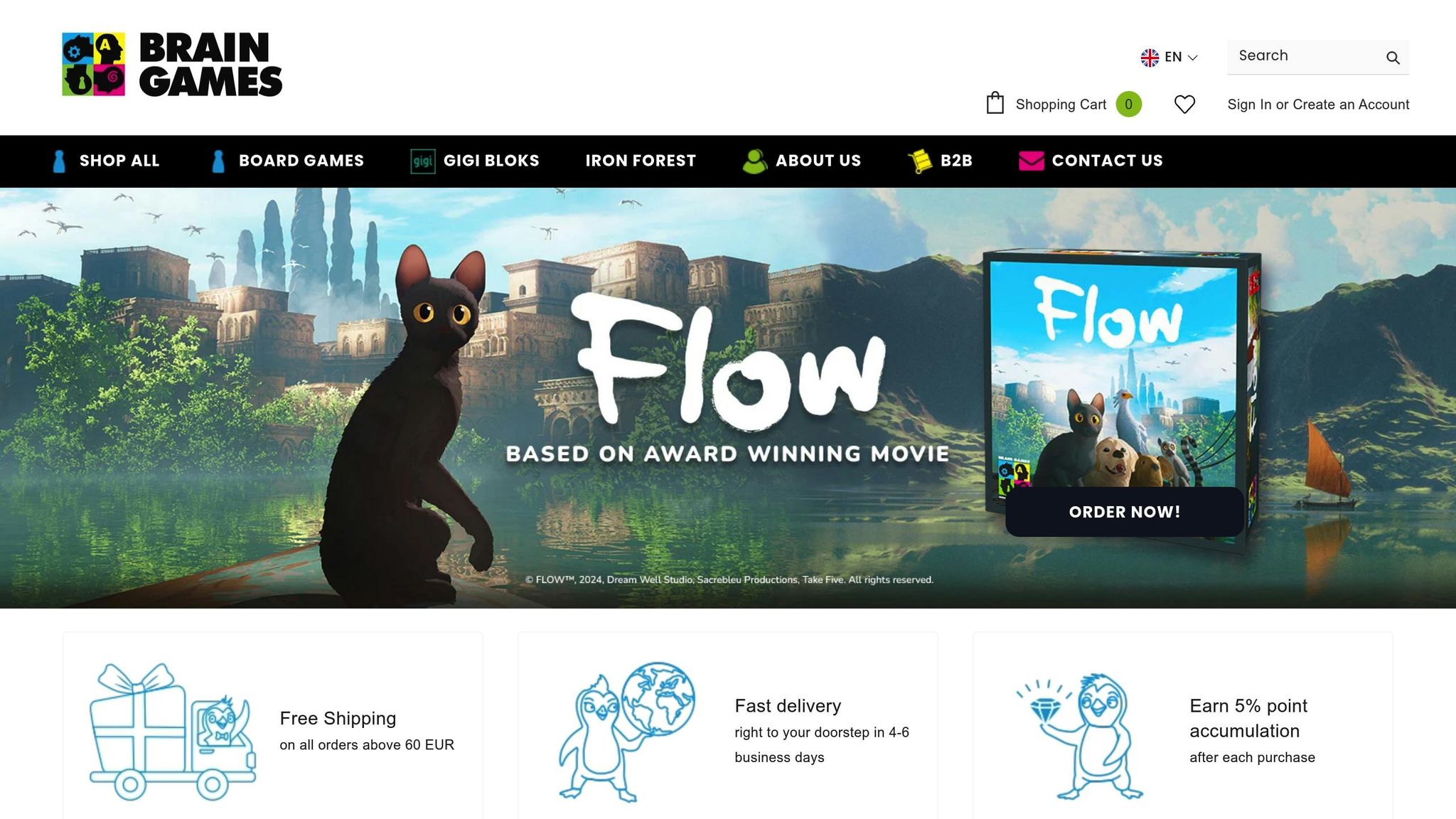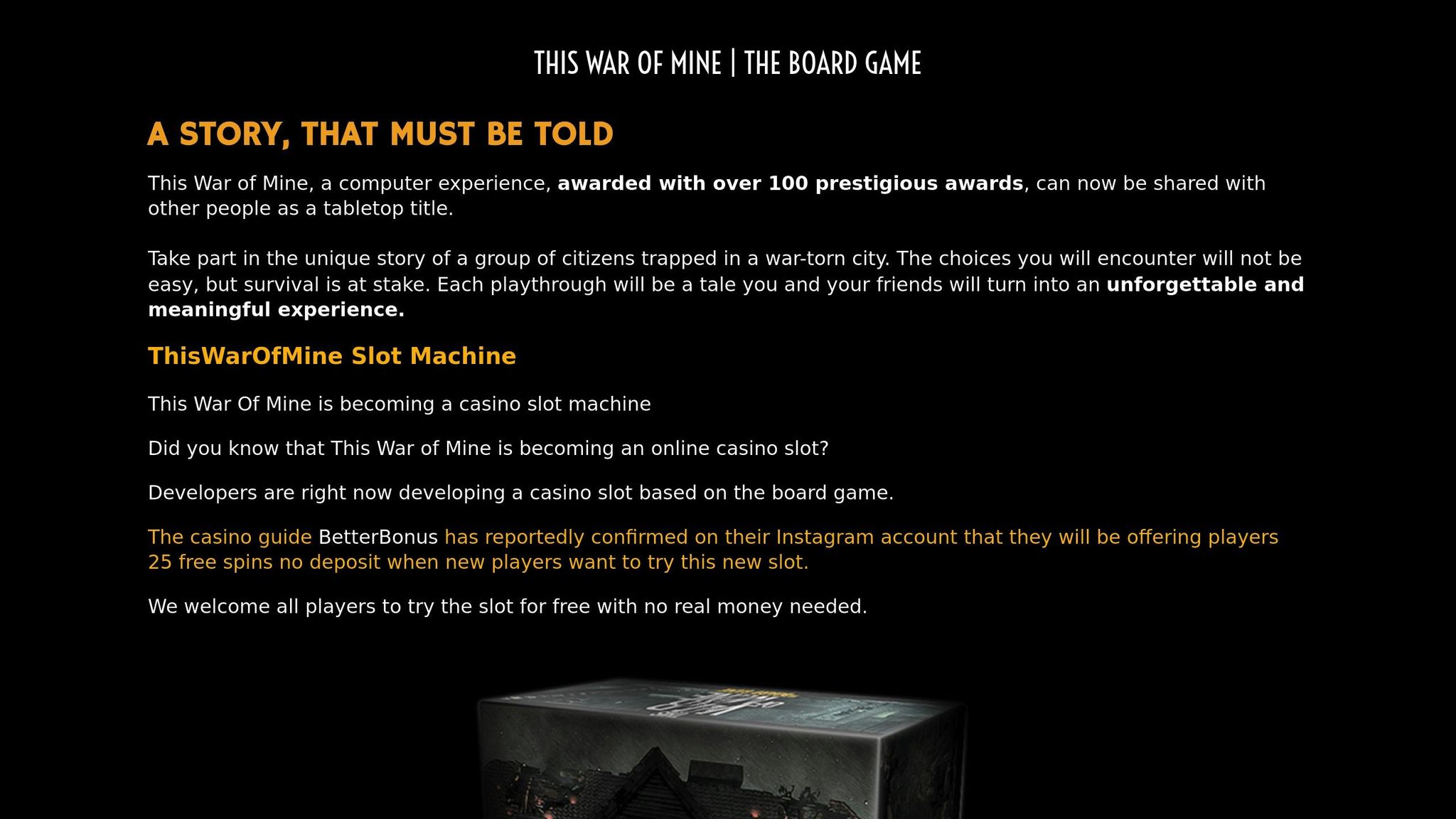Discover the Best Board Games for Every Player

Top 7 Moral Dilemma Games for Families
Playing moral dilemma games as a family is a fun way to bond, build empathy, and tackle ethical challenges together. These games spark meaningful conversations while improving critical thinking and decision-making skills. Here are the top 7 moral dilemma games to try:
- Moral Dilemma by Brain Games: Best for ages 12+, featuring thought-provoking scenarios like the "Trolley Problem."
- The Dilemmas Game: Ideal for teens and adults, with 52 cards covering topics like relationships and work challenges.
- Scruples: Teens and adults predict how others respond to tricky moral questions.
- Choices: The Ethics Game: Explores ethical decisions at different life stages, suitable for ages 12+.
- Would You Rather: Family Edition: Fun for ages 10+, with lighthearted moral questions like choosing between being a superhero or a villain.
- Pandemic: Cooperative game for ages 10+, focused on global health crises and resource management.
- This War of Mine: For ages 18+, tackling heavy wartime moral dilemmas and survival ethics.
These games are great for family game nights, helping you explore values, strengthen communication, and have fun together.
Quick Comparison:
| Game Name | Age Suitability | Themes Covered | Gameplay Style |
|---|---|---|---|
| Moral Dilemma | 12+ | Everyday ethics, values | Thought-provoking scenarios |
| The Dilemmas Game | Teens & Adults | Relationships, work, family | Competitive discussions |
| Scruples | Teens & Adults | Social situations, moral reasoning | Predictive, group debates |
| Choices: The Ethics Game | 12+ | Life stages, ethical frameworks | Open discussions |
| Would You Rather: Family Ed. | 10+ | Fun moral questions | Flexible, light debates |
| Pandemic | 10+ | Global health, teamwork | Cooperative strategy |
| This War of Mine | 18+ | Wartime survival, ethics | Cooperative, heavy themes |
Start your family’s moral journey today by picking a game that suits your group’s age and interests!
Teaching Ethics with Games - The Magic Circle
1. Moral Dilemma by Brain Games

This game highlights how moral dilemmas can ignite meaningful conversations within families.
Age Suitability
Best suited for ages 12 and up, the game encourages thoughtful discussions. For younger players, parents can modify scenarios to make them more age-appropriate.
Ethical Themes Explored
Moral Dilemma challenges players with thought-provoking scenarios that test their values and decision-making skills. These scenarios reflect real-life dilemmas, pushing players to reconsider their principles and the potential outcomes of their choices.
Here are some examples from the game:
- The well-known "Trolley Problem", where players must choose between saving four lives by sacrificing one.
- "Lend a Hand", which delves into biases when deciding who to help based on factors like appearance or age.
- "Coffee Change", a scenario that examines honesty in everyday situations.
These scenarios spark lively debates about values, responsibility, and ethics, offering a glimpse into the ethical challenges families often encounter in daily life.
Educational Value
This game stands out as a learning tool by:
- Encouraging critical thinking and empathy.
- Teaching players to articulate and defend their moral decisions.
- Helping participants grasp the broader impact of ethical choices.
Rather than presenting simple right-or-wrong answers, the game pushes players to balance conflicting values and consider the long-term effects of their decisions. This approach sharpens reasoning and improves communication skills.
2. The Dilemmas Game
The Dilemmas Game invites players to tackle moral dilemmas, sparking meaningful discussions and encouraging problem-solving within families. Like its predecessor, it uses relatable scenarios to fuel engaging debates.
Age Suitability
This game is ideal for older kids, teens, and adults who can engage in deeper conversations about ethics. Its scenarios often involve mature topics like relationships, workplace challenges, and family issues, making it less suited for younger children.
Ethical Themes Explored
The game includes 52 dilemma cards divided into five categories: Relationships, Work, Sociability, Family, and Leisure.
Each card presents a real-life scenario. For instance, one dilemma explores how to respond to a friend confessing infidelity, while another questions whether to accept a prestigious job at a company with a controversial humanitarian reputation.
Gameplay Format
The game takes a competitive approach, where players aim to provide the most persuasive advice. One player acts as the Questioner, presenting a dilemma card, while others suggest solutions based on their experiences. The Questioner awards the card to the most convincing response, and roles rotate until a winner emerges.
Educational Value
This game goes beyond abstract debates by focusing on practical decision-making. Players develop ethical reasoning, learn to express and defend their viewpoints, and explore diverse perspectives. It’s a great way to practice solving problems as a family while sharpening critical thinking and communication skills.
3. Scruples
Scruples is a game that combines ethical dilemmas with a competitive twist, encouraging players to predict how others might respond to tricky moral questions.
Age Suitability
Scruples is best suited for teens and adults due to its mature scenarios and the level of thought required. The game involves understanding nuanced social situations and explaining moral reasoning, making it less ideal for younger kids. This focus on deeper ethical discussions makes it a great choice for older players.
Ethical Themes Explored
The game uses yellow cards to present players with moral dilemmas, ranging from everyday decisions to more challenging situations. These scenarios spark meaningful conversations and provide insight into how players approach complex moral questions.
Gameplay Format
Players take turns predicting how others will respond - choosing "Yes", "No", or "Depends." If "Depends" is chosen, a brief explanation is required. Ballot cards add another layer by allowing players to question the sincerity of an explanation, leading to lively and engaging group discussions.
Educational Value
Scruples goes beyond entertainment by encouraging critical thinking and ethical reasoning. It fosters meaningful conversations within families, helping players develop social awareness and a better understanding of each other's values. The game strengthens family connections as players articulate and reflect on their decision-making processes, making it a powerful tool for both fun and learning.
sbb-itb-1ed942f
4. Choices: The Ethics Game
Choices: The Ethics Game explores how people make moral decisions at different stages of life, using the Ethical Lens Inventory (ELI) framework.
Age Suitability
The game includes question sets designed for childhood, adolescence, middle years, and old age. While some sources suggest it can be played starting at age 2, it’s most engaging for families with children aged 12 and older due to the complexity of the language.
Ethical Themes Explored
Players are encouraged to reflect on various ethical viewpoints, such as:
- Consequences and outcomes
- Universal rights and responsibilities
- Relationships within the community
- Personal character and reputation
By weaving these ideas into its scenarios, the game sparks meaningful conversations about values and moral choices among family members.
Gameplay Format
The game focuses on open discussions. Players make individual choices and sometimes work together to reach an agreement. Dice rolls add an element of chance to the mix.
Educational Value
This game goes beyond simple right-or-wrong answers. It’s a tool for understanding different ethical viewpoints, reducing conflicts by recognizing others’ values, and improving decision-making skills. Its flexible design makes it a popular pick for family game nights, blending personal ethics with group discussions and preparing players for more complex moral dilemmas.
5. Would You Rather: Family Edition
Would You Rather: Family Edition brings moral dilemmas to life through fun and thought-provoking family discussions. With a 4.6 out of 5 stars rating from 333 global reviews on Amazon, it’s a hit among families.
Age Suitability
Designed for players aged 10 and up, this game has questions that work for all age groups. Parents can tweak the challenge level by picking questions that align with their kids’ understanding.
Ethical Themes Explored
The game introduces a range of moral scenarios to spark conversations. For instance, one question asks, "Would you rather be an unknown superhero or a famous villain?". This opens up discussions around:
- Choosing recognition or doing the right thing
- Prioritizing personal success versus helping others
- Balancing public image with private values
These scenarios make it a great way to explore deeper topics in a fun, relaxed setting.
Gameplay Format
The game is flexible. While it’s often played competitively, families can switch things up by focusing on collaborative discussions. Players can explain their choices and share their reasoning, making it ideal for different types of gatherings.
Educational Value
This game encourages players to think critically, express themselves clearly, and expand their vocabulary as they explain their decisions. Its adaptable format also makes it a great choice for both in-person play and video calls.
6. Pandemic
Pandemic takes players into scenarios that mirror the challenges of global health crises, offering a chance to tackle ethical dilemmas in a cooperative setting. With over 2 million copies sold, this board game has gained attention for its focus on complex decision-making.
Age Suitability
Pandemic is designed for players aged 10 and older, with a complexity rating of 2 out of 5. This makes it approachable for families while still providing enough depth to keep adults engaged.
Ethical Themes Explored
The game challenges players to make tough decisions about resource allocation, global collaboration, and balancing individual sacrifice against the greater good.
Gameplay Format
Players take on roles with unique abilities, traveling across major cities to treat infections, build research stations, discover cures, and stop outbreaks before they get out of control.
Educational Value
Pandemic has been praised for its educational aspects. According to The Guardian, educators have adapted the game to teach students about disease transmission and public health strategies. It also helps develop key skills, including:
- Strategic planning and resource management
- Team communication and coordination
- Critical decision-making under pressure
"It's captivating, pacey and dramatic. In fact, it's the perfect game to start your board game collection." – Shut Up & Sit Down
7. This War of Mine: The Board Game

This War of Mine takes players into a grim, wartime setting, challenging them with ethical dilemmas inspired by real-life events. The game draws heavily from the civilian survival struggles during the Sarajevo siege. A siege survivor described it as a "masterpiece", giving it a perfect 10/10 rating.
Age Suitability
Designed for players aged 18 and older, this game tackles heavy themes that require emotional maturity. Parents should consider whether their family is ready to engage with such intense wartime scenarios.
Ethical Themes Explored
The game immerses players in moral conflicts that reflect real-life challenges during war. From deciding how to allocate scarce resources to balancing personal survival with ethical principles, the dilemmas are relentless. Players must also weigh the needs of individuals against the welfare of the group. For instance, one scenario presents an elderly woman searching for her grandchildren. Players must decide whether to help her, ignore her, or take her resources for their own survival.
These decisions form the core of the game, requiring players to navigate tough moral terrain together.
Gameplay Format
This War of Mine is a cooperative game for 1–6 players. Unlike many games, no one controls a specific character. Instead, all players share responsibility for group decisions, focusing on managing limited resources and navigating moral challenges as a team.
Educational Value
"I'm sure you can 'win' - I haven't yet - but at what cost? I mean, you can do really bad things in this game in the name of survival. You will have really bad things done to your characters in the name of survival. And that's a really tough bridge to cross"
Tom Vasel’s insight highlights the emotional weight of survival choices. Through gameplay, participants develop skills in decision-making under pressure, gain a deeper understanding of the human toll of war, build empathy for civilian experiences, and grapple with complex moral reasoning in crisis situations.
Conclusion
Moral dilemma games bring families closer, encourage critical thinking, and teach important life lessons. Research from the University of Florida highlights that kids who solve problems with their parents tend to develop stronger memory skills and handle challenges more effectively. These games offer a space to discuss values while also improving vocabulary, boosting reading skills, and supporting emotional health. Beyond the fun, they lay the groundwork for meaningful family connections.
Playing these games together helps build empathy by encouraging shared reflection, as families work through ethical challenges as a team. When players relate game scenarios to real-life situations, they gain a deeper understanding of values, ethics, and decision-making.
Want to make the most of these games? Here are a few tips:
- Set aside a regular family game night.
- Share personal stories that connect to game dilemmas.
- Tailor scenarios to reflect challenges unique to your family.
- Use the games as a springboard for deeper conversations about values.
Research from Carnegie Mellon University also shows that even brief exposure to educational games can lead to classroom improvements. This demonstrates how combining entertainment with ethical decision-making can create a powerful learning experience.
Whether you're tackling everyday moral questions or more complex scenarios, these games provide an opportunity to strengthen family ties, reduce stress, and promote well-being. From This War of Mine to Choices: The Ethics Game, every session of play becomes a chance to grow together as a family.






